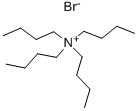1-Chlorobutane , 99.5%,forproteinsequenceanalysis , 109-69-3
Synonym(s):
1-Chlorobutane;Butyl Chloride;n-Butyl chloride
CAS NO.:109-69-3
Empirical Formula: C4H9Cl
Molecular Weight: 92.57
MDL number: MFCD00001009
EINECS: 203-696-6
PRODUCT Properties
| Melting point: | -123 °C (lit.) |
| Boiling point: | 77-78 °C (lit.) |
| Density | 0.886 g/mL at 25 °C (lit.) |
| vapor density | 3.2 (vs air) |
| vapor pressure | 80.1 mm Hg ( 78.4 °C) |
| refractive index | n |
| Flash point: | -12 °F |
| storage temp. | 2-8°C |
| solubility | water: soluble0.11g/L at 20°C |
| form | Viscous Liquid |
| color | White to pink to light brown |
| Odor | Unpleasant odor |
| explosive limit | 1.8-10.1%(V) |
| Water Solubility | 0.5 g/L (20 ºC) |
| Merck | 14,1560 |
| BRN | 1730909 |
| Dielectric constant | 9.6(20℃) |
| Stability: | Stable. Highly flammable. Note low flash point and wide explosion limit range. Incompatible with strong oxidizing agents, strong bases. |
| InChIKey | VFWCMGCRMGJXDK-UHFFFAOYSA-N |
| LogP | 2.66 at 20℃ |
| Surface tension | 23.74mN/m at 293.15K |
| CAS DataBase Reference | 109-69-3(CAS DataBase Reference) |
| NIST Chemistry Reference | Butane, 1-chloro-(109-69-3) |
| EPA Substance Registry System | 1-Chlorobutane (109-69-3) |
Description and Uses
Butyl chloride is a highly flammable, clear,colorless liquid. Molecular weight = 92.6 (n- and sec-isomers); Boiling point = 77℃; 69℃ (sec-isomer); Specificgravity (H2O:1) = 0.89; Freezing/Melting point =-123℃; Flash point = 9℃; - 10℃ (sec-isomer);Relative vapor density (air =1) = 3.2 (n- and sec-isomers);Vapor pressure = 81 mmHg at 20℃; Autoignitiontemperature = 240℃. Explosive limits: LEL = 1.8%;UEL = 10.1%. Insoluble in water. Hazard Identification(based on NFPA-704 M Rating System): Health 2,Flammability 3, Reactivity 0; (sec-) Health 2, Flammability4, Reactivity 0. Practically insoluble in water;solubility = 0.7% at 12℃.
1-Chlorobutane may be used in the synthesis of ionic liquids, 1-butyl-3-methylimidazolium hydrogen sulfate ([Bmim]+[HSO4]-) and 1-butyl-3-methylimidazolium dihydrogen phosphate ([Bmim]+[H2PO4]-).
Safety
| Symbol(GHS) |   GHS02,GHS08 |
| Signal word | Danger |
| Hazard statements | H225-H304-H412 |
| Precautionary statements | P210-P233-P240-P273-P301+P310-P331 |
| Hazard Codes | F |
| Risk Statements | 11 |
| Safety Statements | 9-16-29 |
| RIDADR | UN 1127 3/PG 2 |
| WGK Germany | 2 |
| RTECS | EJ6300000 |
| F | 1-10 |
| Autoignition Temperature | 860 °F |
| TSCA | Yes |
| HazardClass | 3 |
| PackingGroup | II |
| HS Code | 29031990 |
| Hazardous Substances Data | 109-69-3(Hazardous Substances Data) |
| Toxicity | LD50 orally in rats: 2.67 g/kg (Smyth) |




